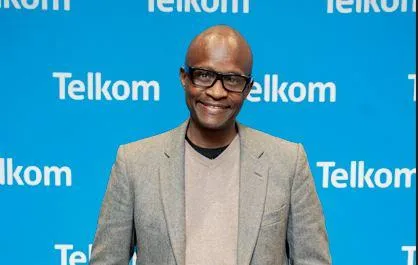It’s time to ‘walk the talk’ on innovation

Every year, headlines highlight South Africa’s growing IT skills shortage, says the author.
Image: File
The mother-city is buzzing as South Africa concluded hosting the ongoing G20 Digital Economy Ministerial Meeting and the AI for Africa Summit, drawing ministers from G20 member states, guest countries, and African Union dignitaries.
As part of the South African delegation, I had the privilege of contributing to bilateral discussions that revealed an undeniable truth: Africa’s economic future hinges on the growth of Small, Medium, and Micro Enterprises (SMMEs), the vibrancy of our innovation ecosystems, and the equitable deployment of digital technologies such as artificial intelligence (AI).
The Economic Backbone: SMMEs
SMMEs are the lifeblood of our economies, though their contribution is often understated.
In South Africa, they contribute close to 40% of GDP, and provide about a third of formal employment.
Across the African continent, they represent around 95% of all registered businesses and contribute roughly 50% of GDP. Simply put, without SMMEs, neither South Africa nor Africa has an economy.
Yet, these enterprises face structural constraints: unreliable energy, high connectivity costs, red tape, and limited access to finance.
Supporting them is not charity, it is an economic necessity if we are serious about tackling unemployment and poverty.
The Promise of Technology and Innovation
The e-Conomy Africa report estimates that Africa’s Internet economy has the potential to reach USD 180 billion by this year(2025), accounting for about5.2% of the continent’s GDP.
Additionally, AI and advanced technologies alone are deemed capable of adding up to USD 2.9 trillion to Africa’s economy by 2030.
This growth will not be driven by large incumbents alone but by start-ups and innovators who are closest to the problems and opportunities in their communities.
We already see how tech solutions are transforming sectors, from AI-powered precision farming in agriculture to health diagnostics, fintech, and climate resilience tools. The challenge is to scale these innovations equitably and sustainably.
Key Insights from G20 and AI for Africa
The discussions in Cape Town focused on five areas: Connectivity for Digital Development, Digital Public Infrastructure (DPI), Innovation Ecosystems and MSMEs, Equitable and Inclusive AI, and the AI for Africa Initiative.
Here are my reflections and proposals on each:
Thoughts on Connectivity for Digital Development:
As a Soweto-based innovator, let me re-iterate this - affordable broadband must be a priority. Without universal access, digital inclusion will remain a slogan. Public–private partnerships should expand rural connectivity, while investment in renewable micro-grids is critical to addressing the persistent power gap.
On Digital Public Infrastructure:
DPI, from digital IDs to payment systems, must be inter-operable, open, and designed for SMMEs, not just corporates. Lowering transaction costs and easing business registration can help small firms enter and compete in formal markets.
On Innovation Ecosystems and MSMEs:
Yes, I fully agree that funding is important, but so is mentorship, incubation, and access to markets. Procurement rules should be reformed so governments and corporates actively buy from small firms, creating demand-driven growth.
Equitable and Inclusive AI:
This cannot be over-stated - AI must be developed with Africans, not just for them.
This means localising in African languages, embedding cultural context, and ensuring transparency and fairness in governance.
Skills development, particularly in data science, AI ethics, and software engineering, is urgent to prevent a deepening digital divide.
AI for Africa Initiative:
My thoughts on this are about action beyond polity.
This initiative must go beyond declarations. It needs sustainable financing, cross-border regulatory alignment, and strong partnerships between governments, innovators, and universities.
Crucially, SMMEs must be allocated a meaningful share of funding and opportunities to scale their innovations continent-wide.
What Khoi Tech Proposes
At Khoi Tech, we are only about turning words into action.
The talks at the Summit are nothing without moving into action as follows:
- Launch an SMME AI Accelerator Programme to support 50–100 small black owned tech firms with mentoring, cloud and AI tools, and access to funding over the next 24 months.
- Advocate for a pan-African consortium on digital public infrastructure to build open, shared systems that empower start-ups.
- Push for policy reforms that reduce the cost of connectivity, improve access to finance through blended models, and strengthen digital skills training, particularly in underserved communities.
- Support the development of African language AI models and datasets to ensure technology reflects and serves local realities.
- Partner with energy and telecom companies to promote sustainable infrastructure that enables innovation even in remote or resource-constrained environments.
- Compel multinational tech giants to partner with local black owned tech SMMEs so as to get business from government departments and entities
The Road Ahead
What struck me most at the G20 Digital Economy Ministerial Meeting is that consensus exists: everyone agrees that digital transformation, innovation, and AI are central to Africa’s future.
But consensus alone is not enough. What matters now is implementation and bridging the gap between declarations and delivery.
Africa has a unique opportunity to leapfrog into a digital, inclusive future.
But this will only happen if we empower SMMEs, invest in local innovation ecosystems, and ensure that AI is equitable.
If done right, Africa will not just be a consumer of global technologies but a creator, shaping solutions for its people and the world.
As Khoi Tech, we believe the path forward is clear. The question is whether we have the collective will to walk it.
Seati Moloi, CEO and Founder of Khoi Tech.

Seati Moloi, CEO and Founder of Khoi Tech.
Image: Supplied.
BUSINESS REPORT